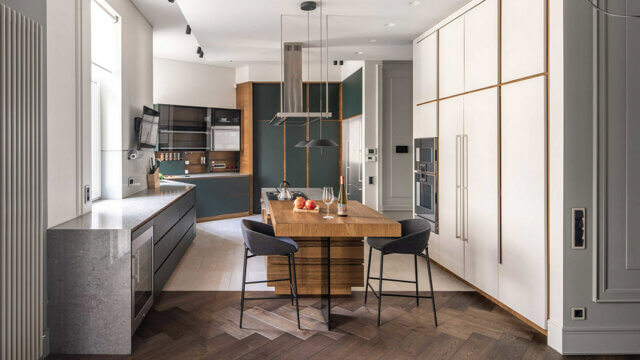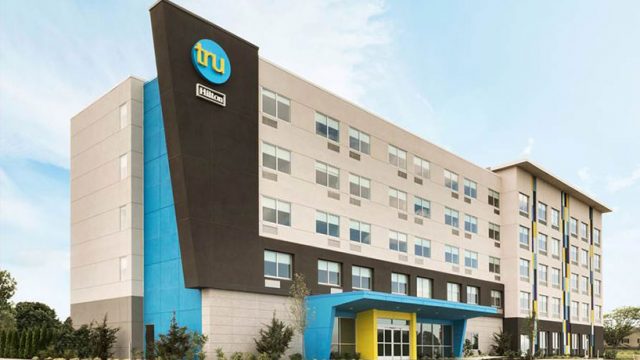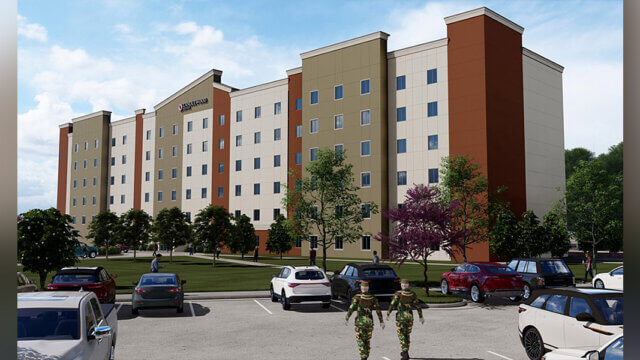Although the industry is getting back on its feet post-pandemic, many hoteliers are still facing hardships. For struggling hoteliers, hotel conversions may be an ideal option. A hotel conversion presents a possible lifeline, but how feasible are these projects? Where should hoteliers begin?
Hotel Business spoke with renovation and repositioning specialist Tallal Bhutta, a leading authority on executing hotel conversions, and founder/CEO of BDB Construction Enterprise, who discussed the benefits of hotel conversions.
Why should hoteliers look to conversions?
This is a question of economics and viability. Longtime hoteliers are often reluctant to convert their buildings, but many hospitality properties are still struggling. A pivot to hotel-adjacent uses like student housing or extended-stay housing is a smart move in that context, especially for new owners who bought hotels during the pandemic. This emerging class of building owners is leading the conversion push right now and is delivering innovative new properties.

What are the benefits?
For owners, the economic benefits can be significant. Converting a hotel to a different use can bring stronger and more consistent long-term revenue streams, reduce staffing needs and open the door to smoother and more efficient operations thanks to less intensive ongoing maintenance and upkeep.
It’s hard to overstate how impactful this pivot can be to a hotelier with a struggling property. For example, in almost any city with a robust higher-education and high-tech industry presence, the need for student and intern residences will outpace the existing housing supply. As a result, these institutions are very eager to partner with building owners and secure long leases for residential space, often up to a decade. This reality makes extended-stay properties a stable proposition for owners—including hoteliers who are looking to convert and diversify beyond traditional lodging models.
What buildings are the easiest and which are most challenging to convert?
Conversion projects are about economic logic, so the easiest building to convert is the one that has the most possible pieces already in place. If the building envelope is solid, and the existing MEP systems and other infrastructure (such as elevators) are in good shape, that’s a promising sign. Walls, ceilings and finishes are less of a concern because smart planning makes those renovations straightforward. This is also why savvy hoteliers are looking to new uses that have similar interior programmatic requirements to hotels—many existing hotel spaces such as fitness centers, lounges and shared work areas can be easily retrofitted for new end-users.
How can hoteliers take advantage of these opportunities?
One of the best ways for hoteliers to take advantage of conversion opportunities is to collaborate with another organization or development partner. Working together with a third-party group that has experience in conversions will save significant time and money because they can assist with critical elements of the process from feasibility studies through construction.
What about some challenges that come with hotel conversions?
Hotel conversions can bring quite a few challenges. Speed-to-market is a key factor in any successful conversion, and meeting deadlines can be daunting. Project teams need to make sure that the architects’ designs are buildable, that any MEP upgrades can be carried out within the necessary timeframe and that construction materials are actually available. A good example of what these challenges look like in practice is when the owner group needs to add kitchens in a hotel conversion: this triggers a change of use with building codes and often requires electrical upgrades and new plumbing and life safety systems. All of this requires permits and inspections, which can take time, but it’s necessary to ensure the temporary certificate of occupancy (TCO) process goes smoothly and the new tenants can move in quickly.
How should hoteliers manage those?
Managing and overcoming these challenges is all about assembling the right project team. Every conversion is different, but the overall process is predictable and rewards experience. Being able to rely on experts who have carried out similar projects before and who can foresee and plan for challenges will often make the difference between a conversion that’s on-time, on-budget and successful with its new use for years to come, and one that simply doesn’t pan out.
Can you detail some of your successful conversion stories?
We’ve converted a substantial number of hotels into student housing and other extended-stay uses. Our most recent project is a great success story. For our client FOUND Study, we converted a historic former Marriott in Midtown Manhattan into a 1,355-bed student housing property with 30,000 sq. ft. of communal amenity space, including a fitness center, laundry room, game room, performing arts studio, study room, community kitchen and lounges. Because of our innovative integrated project delivery approach, we were able to complete this substantial conversion in just seven months. Although it only opened this past fall, the property is already almost entirely leased.
What advice do you have for hoteliers undergoing conversion projects?
The best advice I can offer is to choose the right contractor and bring them onto the project as early as possible. This is important because the first stages of the project are so critical in terms of setting out a roadmap for the conversion process. An experienced construction expert who has carried out conversions before will be proactive in planning out key aspects of the renovation and conversion work, such as MEP design and upgrades and most importantly, they can use the latest integrated project delivery methods, which allow owners to get permits earlier and begin construction before full plans are finalized. There are significant benefits to this approach. For example, if an unexpected problem is found behind a wall, project crews can resolve the issue concurrently with revisions to plan documents by the architect and engineer. Time is money with hotel conversions, and managing the construction process effectively is the clearest path to success.
What do you wish you knew earlier in your career that you do now?
There are a few lessons I’ve learned that I like to hold onto in my work, including how important it is to trust the process, be open to opportunities and recognize that success will come as a result. I often feel like I’ve been in the right place at the right time, but the reality also is that I progressed gradually and worked hard to learn as much as possible—whether that meant living with construction workers or carrying out residential waterproofing work. It’s not always easy to recognize how all of our past experiences bring us to where we are today, but reflecting on that progression can create a lot of confidence in the future, which is always helpful in this industry.
Is there anything else readers should know?
The drive toward conversions will only increase in the coming years, but I believe hoteliers can rightfully see this as an opportunity to diversify and expand their business models greatly. The need for residential and hospitality uses—whether short-, medium- or extended-stay—won’t go away, and the inherent location benefits of urban hotels (near attractions, restaurants, shopping and transportation hubs) means there will always be a future for these buildings.
Photos: Courtesy BDB Construction Enterprise




